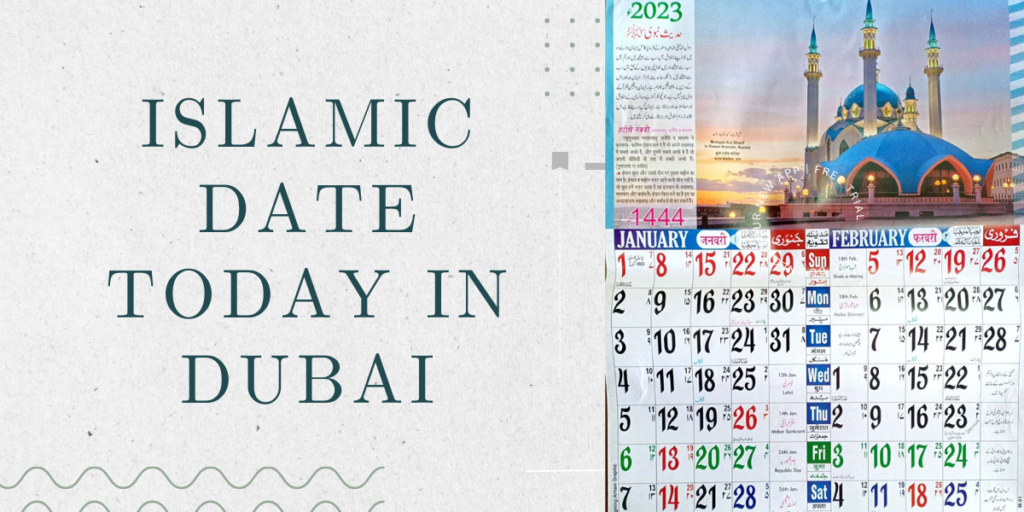Islamic Date Today in Dubai: A Guide to Understanding the Hijri Calendar:
As one of the most diverse cities in the world, Dubai is home to people from different cultural and religious backgrounds. One of the most significant aspects of the Islamic faith, the predominant religion in Dubai, is the Hijri calendar. In this article, we will explore the Islamic date in Dubai today and provide a guide to understanding the Hijri calendar.
Understanding the Hijri Calendar:
The Hijri calendar is a lunar-based system that was introduced by Prophet Muhammad in the year 622 CE. The Islamic year is based on the sighting of the moon, and it consists of 12 lunar months, each of which is 29 or 30 days long. Since the Hijri calendar is shorter than the Gregorian calendar (the standard calendar used in most parts of the world), the Islamic New Year shifts by about 11 days yearly.
The Islamic calendar also has unique names for each of the months. The first month is Muharram, followed by Safar, Rabi’ al-Awwal, Rabi’ al-Thani, Jumada al-Awwal, Jumada al-Thani, Rajab, Sha’ban, Ramadan, Shawwal, Dhu al-Qi’dah, and Dhu al-Hijjah.

Islamic Date Today in Dubai:
The Islamic date today in Dubai is Dhu al-Hijjah 3, 1444 AH. To determine the Islamic date, it is necessary to refer to the Islamic calendar and keep track of the lunar cycle. In Dubai, the sighting of the moon is observed by the Islamic Affairs and Charitable Activities Department (IACAD), which is responsible for determining the start and end of the Islamic months.
Why is the Hijri Calendar Important?
The Hijri calendar plays a significant role in the Islamic faith and determines the dates of important religious events and observances. For example, Ramadan, the ninth month of the Islamic calendar, is the month of fasting and is considered the holiest month in the Islamic calendar. Eid al-Fitr, which marks the end of Ramadan, is celebrated on the first day of the Islamic month of Shawwal.
The Hijri calendar is also used to determine the dates of other important Islamic events, such as Hajj, and the annual pilgrimage to Mecca. The pilgrimage takes place during the Islamic month of Dhu al-Hijjah and is one of the Five Pillars of Islam.
In addition to its religious significance, the Hijri calendar is also used for civil purposes in some Muslim-majority countries. For example, in Saudi Arabia, the official calendar is the Hijri calendar, and it is used for all official government purposes.
Understanding the Islamic date today in Dubai and the significance of the Hijri calendar is essential for anyone living or visiting Dubai, particularly those observing the Islamic faith.
The Hijri calendar is vital in determining the dates of important religious events and observances and is an integral part of Islamic culture and heritage. By better understanding the Hijri calendar, we can appreciate the rich history and traditions of the Islamic faith and the cultural diversity of Dubai.





